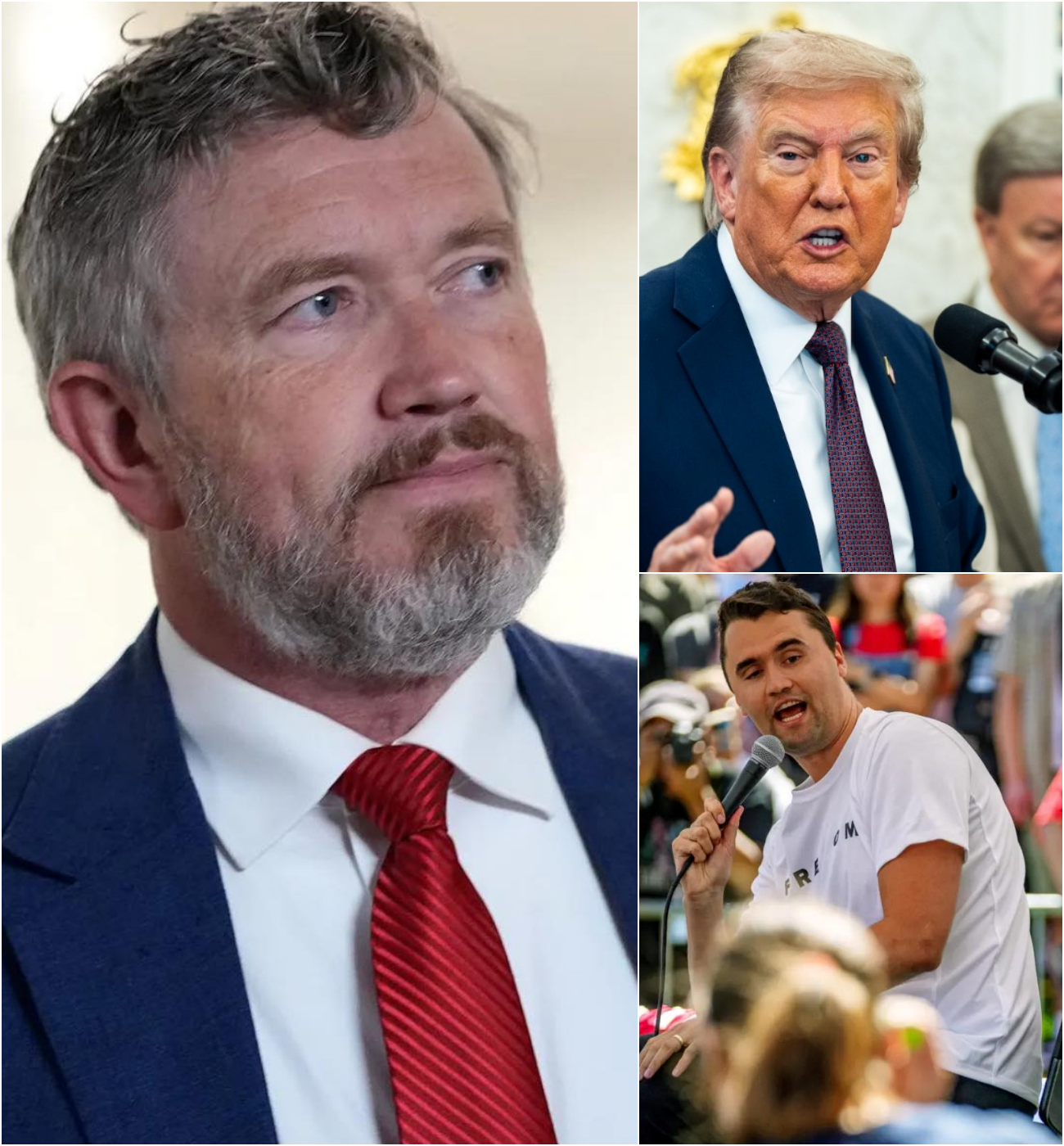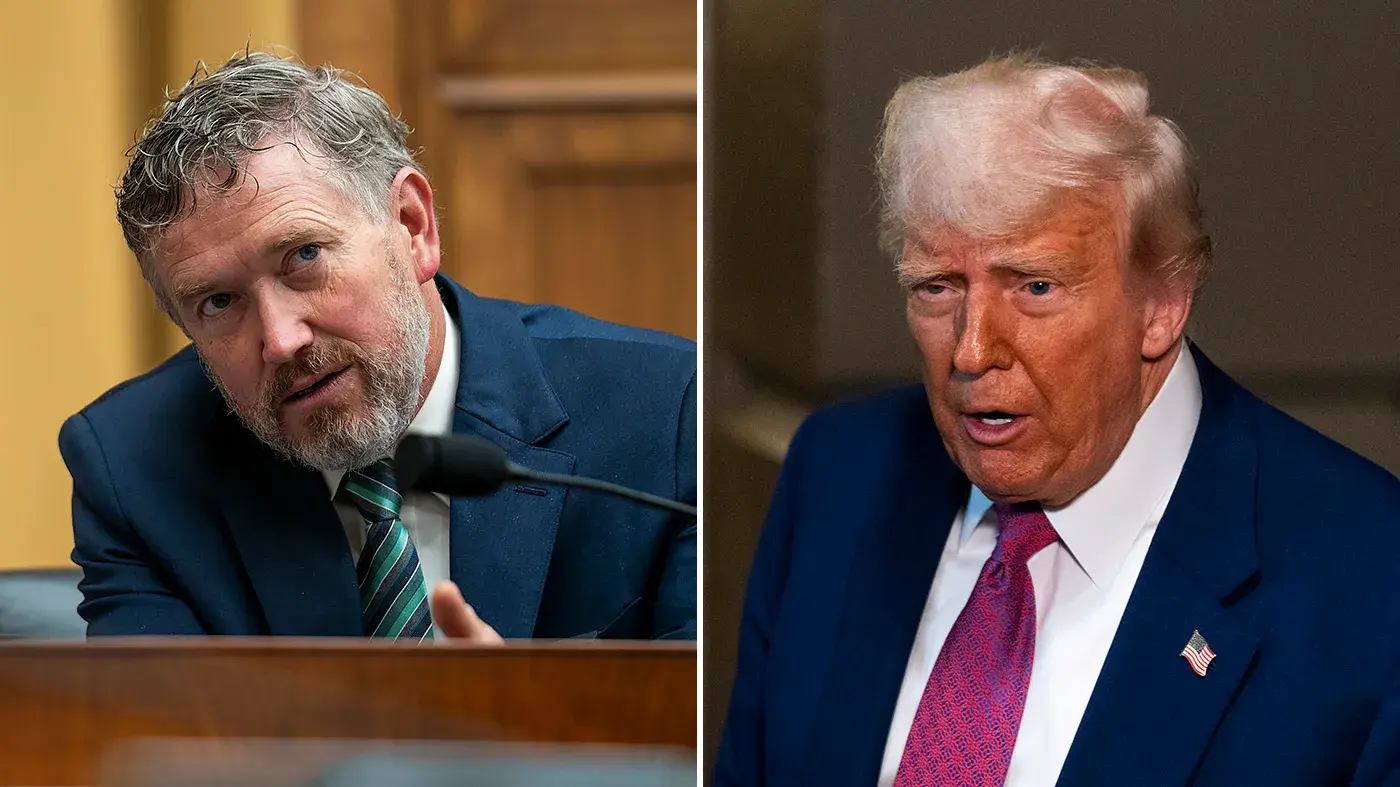The political landscape in Washington, D.C., has been rocked by a stunning escalation of tensions following the assassination of conservative activist Charlie Kirk on September 10, 2025. In the wake of this tragedy, Congressman Thomas Massie, a Republican from Kentucky, has publicly called on President Donald Trump to temper his inflammatory rhetoric, citing concerns that such language may fuel further violence. Massie’s bold demand, however, was met with a swift and fiery response from Trump, leaving the congressman momentarily at a loss for words and deepening the rift within the Republican Party.

The assassination of Charlie Kirk, a prominent figure in conservative circles and the founder of Turning Point USA, sent shockwaves through the nation. Kirk was fatally shot during a public event in Arizona, an act that authorities are investigating as politically motivated. The incident has heightened fears about the growing polarization in American politics, with many pointing to heated rhetoric as a contributing factor. Massie, known for his libertarian-leaning views and willingness to break with party lines, wasted no time in addressing the issue head-on. In a statement delivered on the House floor on September 11, 2025, he urged political leaders, including President Trump, to take responsibility for their words. “There is a lot of rhetoric,” Massie said. “And the president himself engages in it. He called it a hostile act to co-sponsor the Epstein resolution. I think that’s ridiculous rhetoric. It’s amusing, but some people take it literally, and he should probably tone that down himself.”
Massie’s comments were a direct reference to Trump’s recent social media posts, where the president has repeatedly used charged language to criticize opponents, including fellow Republicans. The congressman’s mention of the Epstein resolution—a bipartisan effort to release files related to disgraced financier Jeffrey Epstein—highlighted an ongoing feud with Trump, who has accused Massie of disloyalty for supporting the measure. Massie’s call for de-escalation was not only a plea for civility but also a pointed critique of Trump’s leadership style, which has often relied on provocative statements to rally his base.

The response from President Trump was both immediate and unrelenting. Taking to Truth Social, his preferred platform, Trump doubled down on his criticism of Massie, dismissing the congressman as a “grandstander” and “not MAGA.” In a post that quickly went viral, Trump wrote, “Thomas Massie, the worst Republican Congressman, thinks he can lecture me on rhetoric when he’s too weak to stand up for America. He’s an embarrassment to Kentucky and should be primaried immediately. Sad!” The president’s retort not only rejected Massie’s plea but also escalated their ongoing feud, which has been simmering for months over issues like government spending and foreign policy.
The intensity of Trump’s response reportedly caught Massie off guard. Sources close to the congressman indicated that he was taken aback by the personal nature of the attack, particularly Trump’s call for a primary challenge. Massie, who has represented Kentucky’s 4th Congressional District since 2012, has faced criticism from Trump loyalists before but has largely maintained his independence. His recent actions, including his opposition to Trump’s “One Big Beautiful Bill” and his criticism of U.S. military strikes on Iran, have further strained his relationship with the administration. Yet, Trump’s latest broadside appears to have momentarily silenced Massie, who has not issued a public response to the president’s remarks as of September 12, 2025.

The broader implications of this clash are significant. Kirk’s assassination has already sparked a national conversation about the dangers of political rhetoric, with both sides of the aisle facing scrutiny. Democrats have pointed to Trump’s language as a catalyst for division, while some Republicans argue that Massie’s public criticism of the president undermines party unity at a critical time. The incident has also reignited debates about the role of social media in amplifying inflammatory rhetoric, with platforms like Truth Social serving as echo chambers for partisan narratives.
Massie’s call for restraint comes at a time when he is already under pressure. A recent poll by Kaplan Strategies found that Massie’s favorability among Republican primary voters in Kentucky stands at just 23%, with 62% viewing him unfavorably. Trump’s endorsement of a potential primary opponent could further jeopardize Massie’s re-election prospects in 2026. Meanwhile, Trump’s allies have launched a super PAC aimed at unseating the congressman, signaling a coordinated effort to marginalize dissent within the GOP.
As the nation mourns Charlie Kirk and grapples with the fallout of his death, the feud between Massie and Trump underscores the challenges of navigating a deeply divided political landscape. Whether Massie’s demand for civility will resonate or be drowned out by Trump’s unrelenting rhetoric remains to be seen. For now, the congressman’s silence in the face of Trump’s response speaks volumes, leaving observers to wonder how this latest chapter in their contentious relationship will unfold.